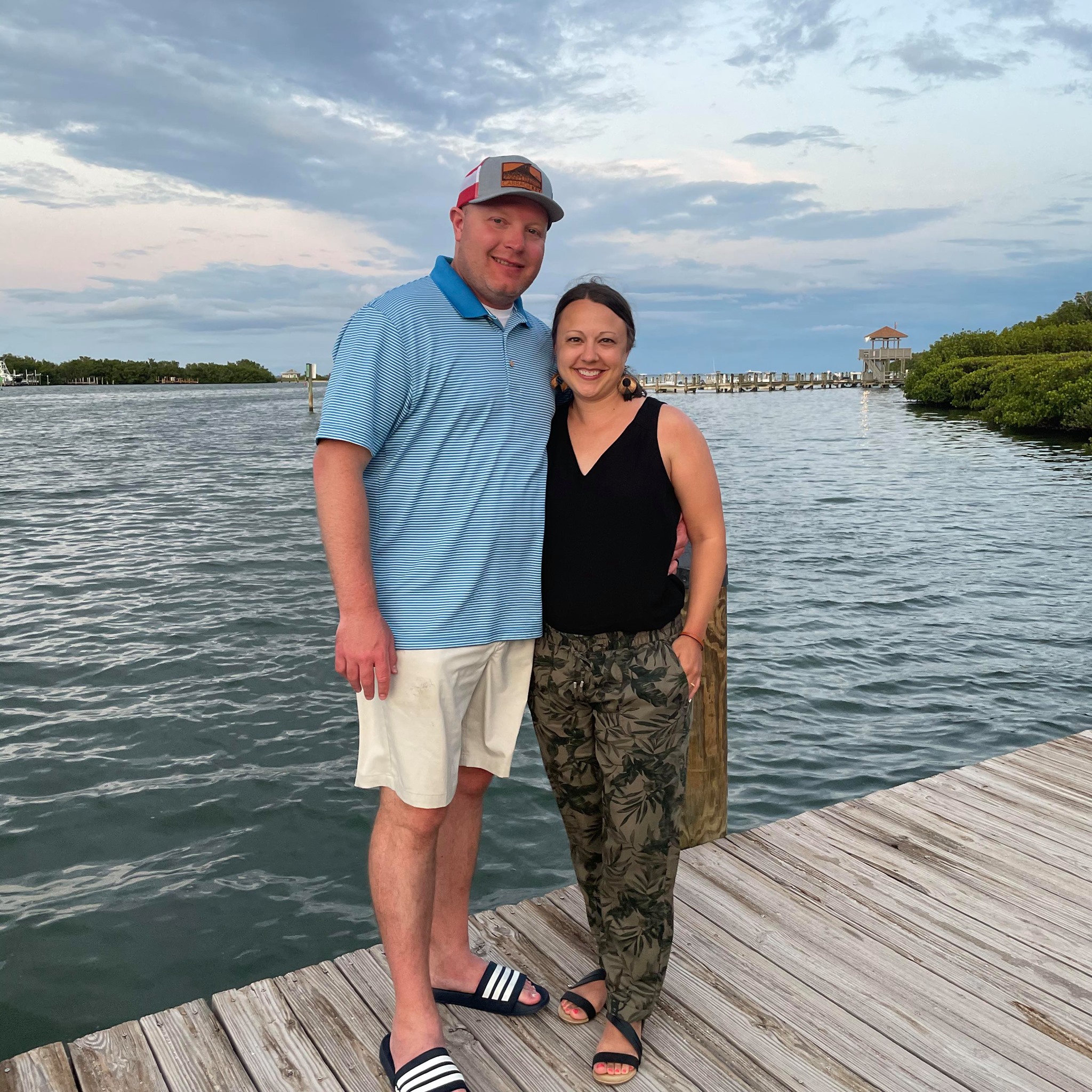Genetic Counseling in the Setting of Fetal Therapy: A Day in the Life
By Diana Smith, Class of 2009
My name is Diana Smith and I am currently one of the two genetic counselors employed at the Fetal Care Center of Cincinnati (FCCC). I was recently approached by the UNCG program to share some of my experiences and insight into genetic counseling in the setting of fetal therapy. I hope that the following short article sheds some light and sparks interest in this field as I have no doubt that this professional setting will continue to create opportunities for genetic counselors.
To provide some background, the FCCC is housed at Cincinnati Children’s Hospital and utilizes Maternal-Fetal Medicine (MFM) specialists from our collaborating hospitals including the University of Cincinnati Hospital and Good Samaritan Hospital. We are a tertiary center who receives referrals primarily from MFMs but also from primary Obstetricians and self-referrals. Our patient population includes families who have known about the birth defects in their current pregnancy from as early as the first trimester or as recent as the night before they traveled to Cincinnati for emergent intervention.
Our primary referring diagnosis is twin-to-twin transfusion syndrome (TTTS) but we also see a variety of diagnoses including congenital diaphragmatic hernia (CDH), lower urinary tract obstructions (LUTO), myelomeningocele, twin reversed arterial perfusion (TRAP), teratomas (sacrococcygeal, mediastinal, cervical), congenital high airway malformation obstruction syndrome (CHAOS) and congenital cystic adenomatoid malformation (CCAM)/congenital pulmonary airway malformation (CPAM). Our center offers various fetal interventions, depending on the indication, including selective fetoscopic laser photocoagulation (SFLP) for TTTS, fetal shunting, fetoscopic cystoscopic laser treatment and vesicocentesis for LUTO, in utero repair of myelomeningocele and special ex-utero intrapartum treatment (EXIT) deliveries.
If I could describe how our center functions in one word, it would be “teamwork”. From initial patient triaging to delivery and post-natal care, we work integrally with every member of our staff including our three administrators, six nurse coordinators, social worker, three pediatric surgeons and various pediatric specialties. Families typically arrive at our center in the morning to undergo various studies including fetal MRI, fetal ultrasound and fetal echocardiogram followed by individual consults during the day, including genetic counseling. We conclude the visit with a team meeting with the family to summarize the imaging findings, offer potential interventions and provide recommendations for the remainder of pregnancy and delivery.
One way that counseling in FCCC is unique is that a fair amount of our patients have already received genetic counseling and/or have had extensive conversations with their referring physicians; thus, our individual sessions do not always require complete intake and/or pedigree to be drawn. I sometimes find this to be an advantage in that we can spend more time discussing the diagnosis and/or potential testing options. Even though individuals may have had previous counseling, their first encounters may have occurred shortly following their initial diagnosis where they may have been overwhelmed or in an initial state of shock. In those instances, it is often helpful for them to review the information again with the family. On the other hand, we also have a population of patients who are receiving second or third opinions from our center and thus have read every study there is on their specific diagnosis and are very prepared and appear to be experts on the condition.
Furthermore, while my counselor instinct is to explain details of the diagnosis from the embryological etiology through the potential interventions and long-term prognosis, I often have to keep in mind that this is also the goal of the team meeting and that the pediatric surgeons present will review this information in far greater detail. In addition, the referring diagnosis is not always the working diagnosis at the end of the day. Therefore, if I’m meeting with a family before the MRI results are available, it is difficult to go into detail of all options when some/all of these options may not be available if the diagnosis changes. Given these considerations, not every counseling session is as in-depth as one might think. We also often have strict time limitations with the family, thus it is not uncommon to have just enough time to collect needed history and then summarize our recommendations during the team meeting.
Being housed in Cincinnati Children’s, we are fortunate to have access to our Clinical Geneticists who are vital to our team. We have numerous families who were seen by a geneticist at FCCC and then continue to have their child follow with the same geneticist long-term. This unique opportunity allows us to be a close support for families from the beginning and also allows for strong continuity of care.
One final unique aspect of the position is that because fetal therapy centers are somewhat scarce, we see individuals not only within the state of Ohio but across the nation. These families may come in for a one-time evaluation or may end up re-locating to the area for intervention and/or post-natal care. In either situation, communication with the families and their referring physicians to coordinate their care is crucial. So while we may only get to meet with a family for one visit, we have the ability to help them along their journey from afar.
All in all, the fetal therapy setting carries the core qualities of prenatal counseling but also has its unique opportunities. My position at FCCC has not only broadened my knowledge of fetal conditions/treatment, but has also provided invaluable experience in allowing me to support families from diagnosis to delivery and beyond. Please feel free to visit our website for additional information (Fetal Care Center) or contact me directly with any questions.
NOTE: Since writing this article, Diana Smith has changed positions. She is now employed as a Genetic Counselor at Myriad Genetics.
